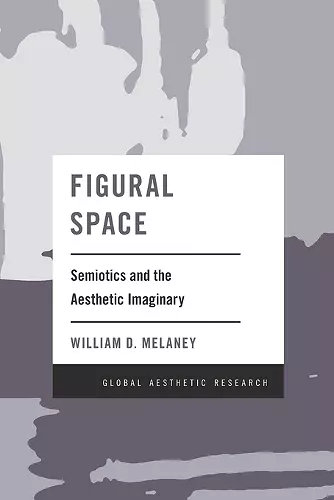Figural Space
Semiotics and the Aesthetic Imaginary
Format:Paperback
Publisher:Rowman & Littlefield
Published:2nd Feb '23
Should be back in stock very soon
This paperback is available in another edition too:
- Hardback£94.00(9781538147856)

This book is concerned with the continuing viability of both Freud and Hegel to the reading of modern literature. The book begins with Julia Kristeva’s attempts to relate Hegelian thought to a psychoanalytically informed conception of semiotics that was first explored in her influential study, The Revolution of Poetic Language, and then modified in later books that develop semiotics in new directions. Kristeva’s agreements and disagreement with Hegel are important to the book’s argument, which ultimately defends Hegel against familiar, poststructuralist detractions. However, the book’s conceptual argument requires a historical exposition, with chapters devoted to literary figures ranging from Spenser to Ishiguro. One of the purposes of the book is to demonstrate that Hegel’s contribution to modern thought is at least partially exhibited in the history of literature, which also corroborates some of the deeper insights of psychoanalysis.
Taking its point of departure in Kristeva’s original combination of speculative philosophy and psychoanalysis, Figural Space offers us the best of what literary theory has in store: real gems, as why Spenser’s epic anticipates Hegel’s Phenomenology of Spirit or why The Prelude echoes Kant. Kristeva’s hitherto untapped critical energies provide a welcome corrective to historicist accounts of literature like those of Gadamer or Rancière, as Melaney’s inspired readings of Rimbaud, Proust, Blanchot, Rhys and Ishiguro abundantly prove.
-- Jean-Michel Rabaté, Professor of English and Comparative Literature at the University of PennsylvaniaI was struck by how Hegel’s aesthetics provides a significant and illuminating point of reference in this work. The book argues for a rehabilitation of Hegel in a cautious yet appreciative spirit. Negotiating its way between more traditional foundational readings and more recent hermeneutical ones, it brings its claim to bear on the writings of many authors, among whom areSpenser, Wordsworth, Shelly, Proust, Blanchot, and Kristeva. It pursues its notion of figural space in an intriguing and informative way, suggestive of the latent power of equivocal dialectic to be aesthetically illuminating in a variety of contexts and figures.
-- William Desmond, David Cook Chair in Philosophy, Villanova University; Thomas A.F. Kelly Visiting Chair in Philosophy, Maynooth University, Ireland; and professor of philosophy emeritus, Institute of Philosophy, KU Leuven, BelgiumThrough subtle readings of very different writers (poets, novelists and philosophers from a range of times and places) Melaney persuasively shows how the aesthetic, described as ‘a form of non-knowledge’, allows us to know so much that would otherwise elude us. A remarkable achievement.
-- Michael Wood, Professor of English, Princeton UniverISBN: 9781538179888
Dimensions: 224mm x 154mm x 15mm
Weight: 313g
204 pages